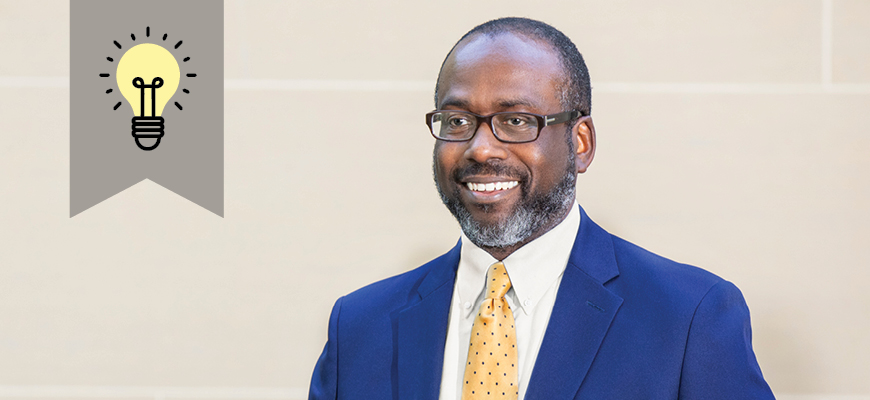
Mungo graduate teaching award: Todd Shaw
Political science professor weaves analysis, storytelling to create engaging classroom experience
Posted on: June 22, 2021; Updated on: June 22, 2021
By Dan Cook, dancook@mailbox.sc.edu, 803-777-7366
Todd Shaw
Associate professor, political science and African American Studies, College of Arts
and Sciences
Ph.D., political science, University of Michigan, 1996
2021 Mungo Graduate Teaching Award
Joined UofSC faculty 2003
I think that there's no such thing as getting through graduate school or a doctoral program without a mentor — it just doesn't happen. Or if it does happen, it happens very slowly and laboriously. My grad school mentors at the University of Michigan were Michael Dawson and Hanes Walton. From Dawson, I learned the importance of reading the literature as widely as you can to really be informed in your knowledge of the best work and creative ideas. And Walton was a very interpersonal mentor — he often sat and chatted with me and others at a local cafe about the influential thinkers in our field and about the politics of the discipline of political science.
Michael didn't rely upon a charismatic or boisterous style to convey his thoughts. He always conveyed the breadth of his thought by the knowledge he presented to you, often in a very plainspoken way. But by the time you realized all of what he presented, you would say, wow. Now, Hanes, he was a storyteller.
These contrasting styles in the classroom kind of convey what I'm trying to do. I try to be analytical — give you the facts of the case, the scholarly insights, etc. But I also try to weave a story to pull my students in. I try not to lecture in a graduate seminar. I frame the discussion and give certain key points. But then the discussion — having done the reading so you can make a contribution — that's really important. As much as I am a little bit performative in the classroom, to me it's always very important to be informed, to be aware of the key things you want your students to walk away with.
Many of the graduate students I teach intend to be teachers and scholars in their own right. And so, in some ways, I let them lead themselves. That’s not to be confused with the person who talks the most and dominates the conversation. I mean that they kind of lead with, ‘So, Shaw, what do you think about this headline in The New York Times, given what we just talked about with policy diffusion?’ I try to create space for them to, in effect, see those teachable moments for themselves. Whereas for undergraduates, they may be a little more intimidated to say, ‘Dr. Shaw, clearly this theory links to that.’
In my view, good teaching and good research go hand in hand. To be a proficient teacher, you’ve got to be aware of cutting-edge research that you can share with your students. But at the same time, my research is informed by engaging discussions that I've had with my students. They have me rethink previous assumptions; they give me a different slant. In an upper-level undergraduate class on the politics of race and science fiction, we were reading a novel that I have been reading as an allegory upon the period of African American enslavement in the United States. But this semester, students said, ‘Dr. Shaw, you know, it actually could be an allegory for European colonialism, or it could be an allegory upon Jim Crow segregation in the South.’ And I said, ‘You know what, you're right in both instances.’ Their fresh eyes made me think again and say, next time I teach this, I'm going to introduce those concepts as well. But also, I am co-authoring a manuscript on race and science fiction, and I will partly credit them for providing me insights.